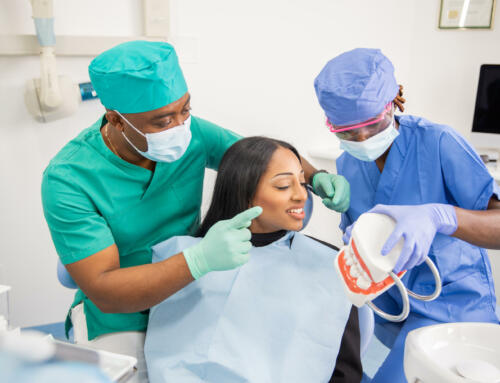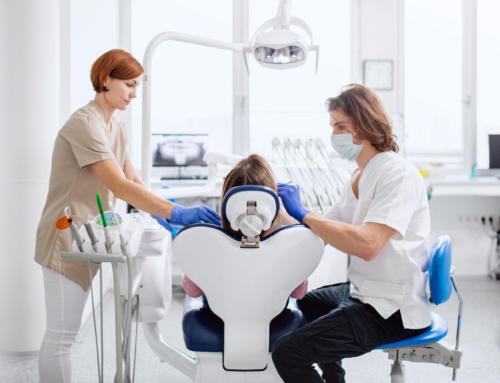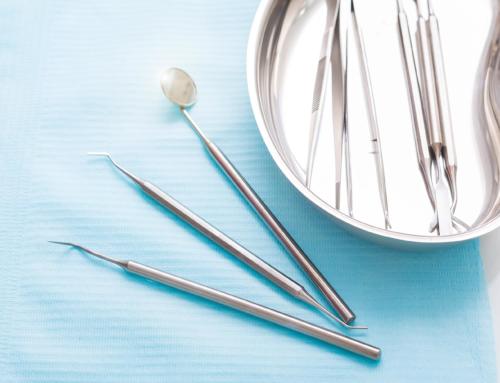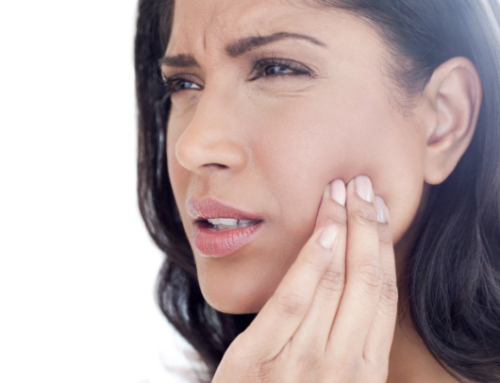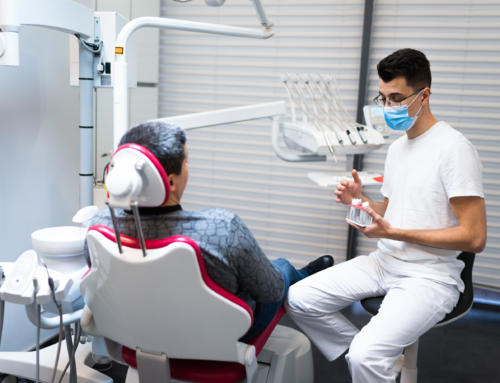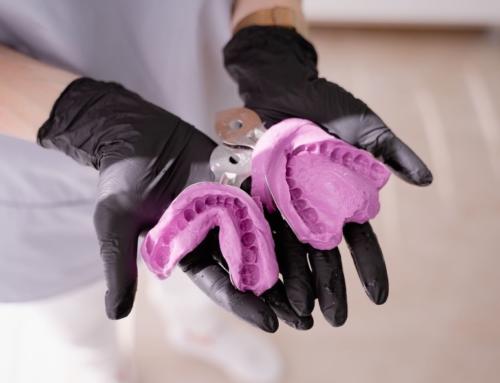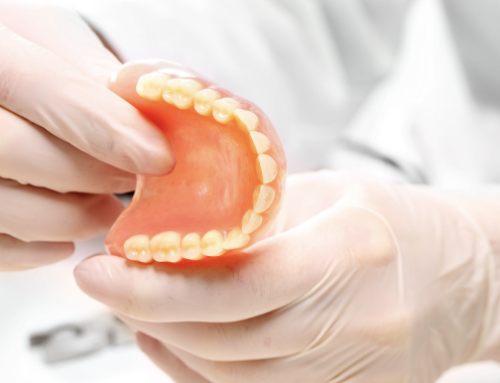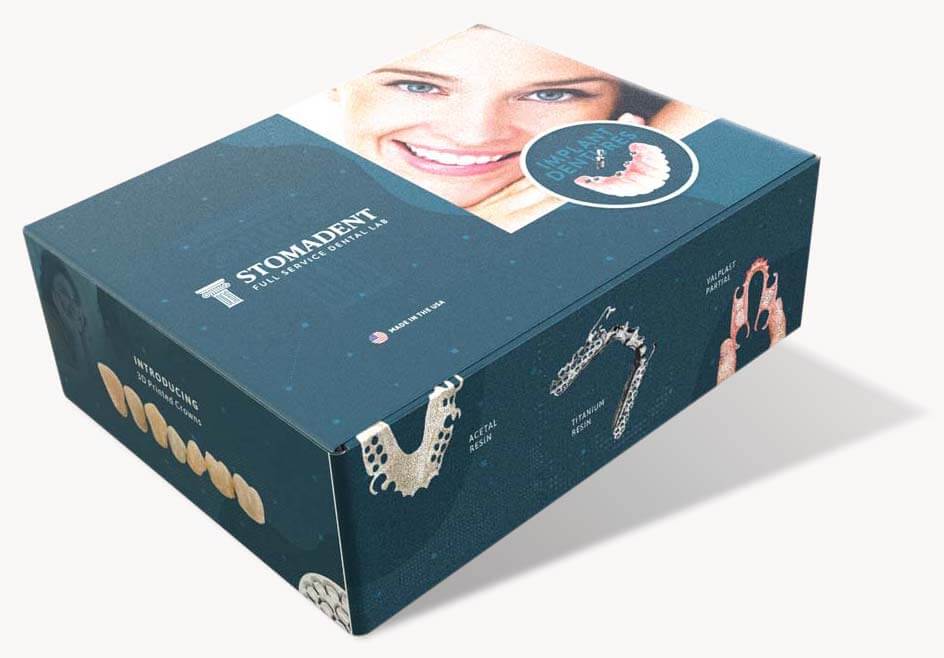
By David Hudnall, DMD
Many dentists will write a prescription for dentures to their dental laboratory without ever fully understanding the quality of the product that they will be delivering to their patients. After all, aren’t all dentures pretty much the same?
It turns out that some dentures are made from higher-quality materials that provide improved durability and better break resistance.
Characteristics of Lucitone 199
With over 40 years of proven clinical success, Lucitone 199 is the industry leader in removable prosthetic resins for both tissue-supported and implant-supported full- and partial dentures. A Lucitone 199 denture base offers outstanding aesthetics (including vein simulation and balanced translucency), high-impact resistance, superb resistance to flexure, and proven durability. The formulation of Lucitone 199 set an industry standard for premium high-impact denture base resins. Available in a wide variety of excellent tissue coloration, including original, light pink, light reddish pink, and dark pink shades, to meet a broad range of patient needs and offering superb resistance.
Aside from the formulation of Lucitone 199 used to produce conventional dentures via the lost wax process, the Lucitone brand also represents companion products made specifically for:
- injection systems,
- digital print dentures,
- milling technology,
- reline acrylics, and
- repair acrylics
that blend seamlessly with 199 denture base resin. Each of these materials has its own unique specifications. In this article, we will limit the discussion to the characteristics and properties of the original processing formulation for Lucitone 199.
Common Questions

Dentists want to be assured that they are providing their patients with durable appliances made from the highest quality materials. So, let’s discuss some of the common questions about dentures and partial dentures made from Lucitone 199 denture resins.
How Long Does It Take for Lucitone 199 to Cure?
The traditional processing method, which involves manual flasking, processes and cures for 9 hours at 163°F (73°C) with a second stage for 30 minutes at 212°F (100°C). The manufacturer recommends further processing for allergic contact dermatitis individuals to minimize the release of residual monomer in fully-cured materials by soaking the prosthesis in a bath of warm water for several days.
Although this is the best method to minimize possible tissue contact reactions, there is a rapid process that involves processing the dentures for 1.5 hours at 163°F (73°C) followed by a second stage for 30 minutes at 212°F (100°C). If you request dentures made from Lucitone 199, it is recommended that you consult with your laboratory to determine which method they employ.
Milled Lucitone 199 dentures produced via a digital laboratory workflow are manufactured from denture base discs that are pre-cured by the manufacturer, eliminating the concern for tissue contact with the release of unreacted monomer from the denture base resin powder post-production.
What is the Flexural Strength of Lucitone 199?
Flexural strength is defined as the maximum stress that a material can withstand before it breaks when subjected to bending forces. It is typically determined through a standardized testing procedure that involves subjecting a specimen to a bending test. It is an essential property to consider in materials that involve structural applications, such as the fatigue caused by denture acrylics by continuous deformation from occlusal forces or when dropped onto a hard surface.
Lucitone 199’s resistance to impact fracture and high flexural strength was the subject of a September 2023 study entitled “An In Vitro Study Comparing the Impact and Flexural Strength of Lucitone 199 Denture Base Resin and Conventional Denture Base Resin Enhanced With Glass Fibre Mesh and Polyethylene Fibre Mesh” (Mori HV, et.al, 2023). This controlled study determined the flexural strength of Lucitone 199 to be 1655.5 newtons.
What this means in practical terms is Lucitone 199 performed significantly better and showed evidence of a much higher resistance to flexure fatigue than its closest glass fiber-mesh resin competitor (999.1 newtons). The data supports the superior strength and resistance to breakage of Lucitone 199, which is one of the main reasons that Lucitone 199 continues to be the denture resin of choice for many dental professionals.
How Long Does Lucitone 199 Last?
While there are no long-term studies on the topic, the Lucitone 199 material itself can literally last for decades. However, realistically speaking, the lifespan of dentures made from Lucitone 199 is heavily dependent upon tissue changes, excessive occlusal wear, and how the patient cares for their appliance.
While the dental professional can help to extend the life expectancy of dentures and partials through regular monitoring, relines, or the removal of occlusal interferences, we really have no control over how the patient chooses to take care of their dentures. That said, dentures that are well cared for can last up to 10 years before requiring replacement.
Best Practices for Using Lucitone 199
From the perspective of the practitioner, dentures processed using conventional methods require adjustments at delivery in order for them to fit comfortably and correctly. Particulates will be generated when grinding acrylate resins. Eye, skin, and respiratory irritation may occur if appropriate shielding and engineering controls are not used. When grinding prosthodontic resins, proper ventilation, masks, eye protection, and vacuum systems should be utilized. Lucitone 199 dentures fabricated via a digital laboratory workflow require minimal to no adjustments at delivery, saving time as well as exposure to airborne resin particles.
Store any in-office repair or reline acrylics at 60°-80°F (16°C – 27°C) away from moisture and direct sunlight. Lucitone liquids contain methyl methacrylate monomer, a flammable liquid with a flash point of 50°F (10°C). Use the liquid in a well-ventilated area and replace the cap when not in use.
While there are methods to minimize monomer release from dentures made from Lucitone 199, the use of Lucitone 199 resin using the traditional packing method is contraindicated for patients and users with a known history of allergic reaction to methyl methacrylate monomer. Patients with monomer allergies are best addressed with hypoallergenic denture bases 3D printed from high-impact resin that is preformulated for consistent results.
Best Materials and Digital Services at Stomadent Dental Lab
Why settle for dentures made from some unknown acrylic when Lucitone 199 dentures and partials provide longevity and unmatched beauty? The technicians at Stomadent Dental Lab want you to be aware of all the possibilities that Lucitone 199 has to offer.
From traditionally produced dentures and partials to 3D printed dentures and milled dentures, Stomadent offers a Lucitone solution for every preference.

